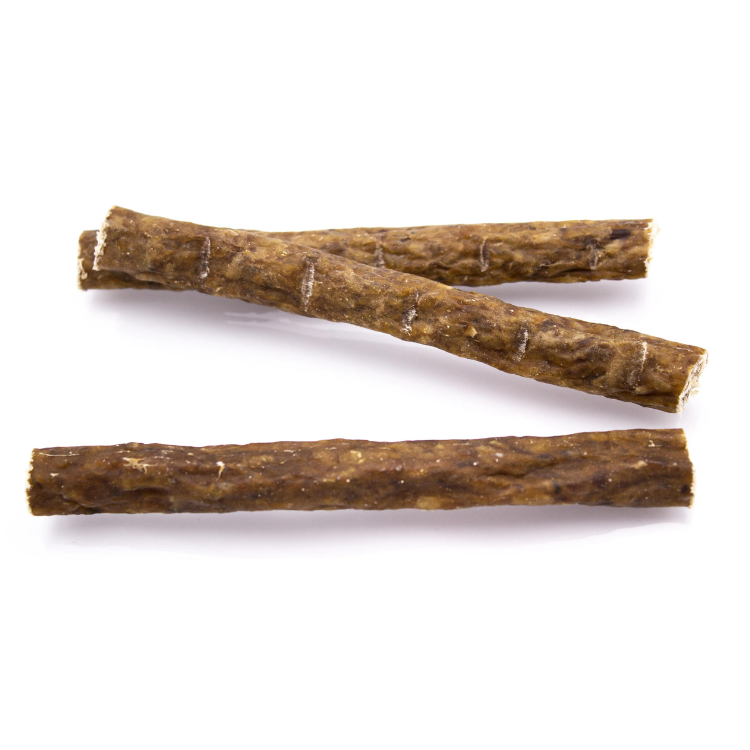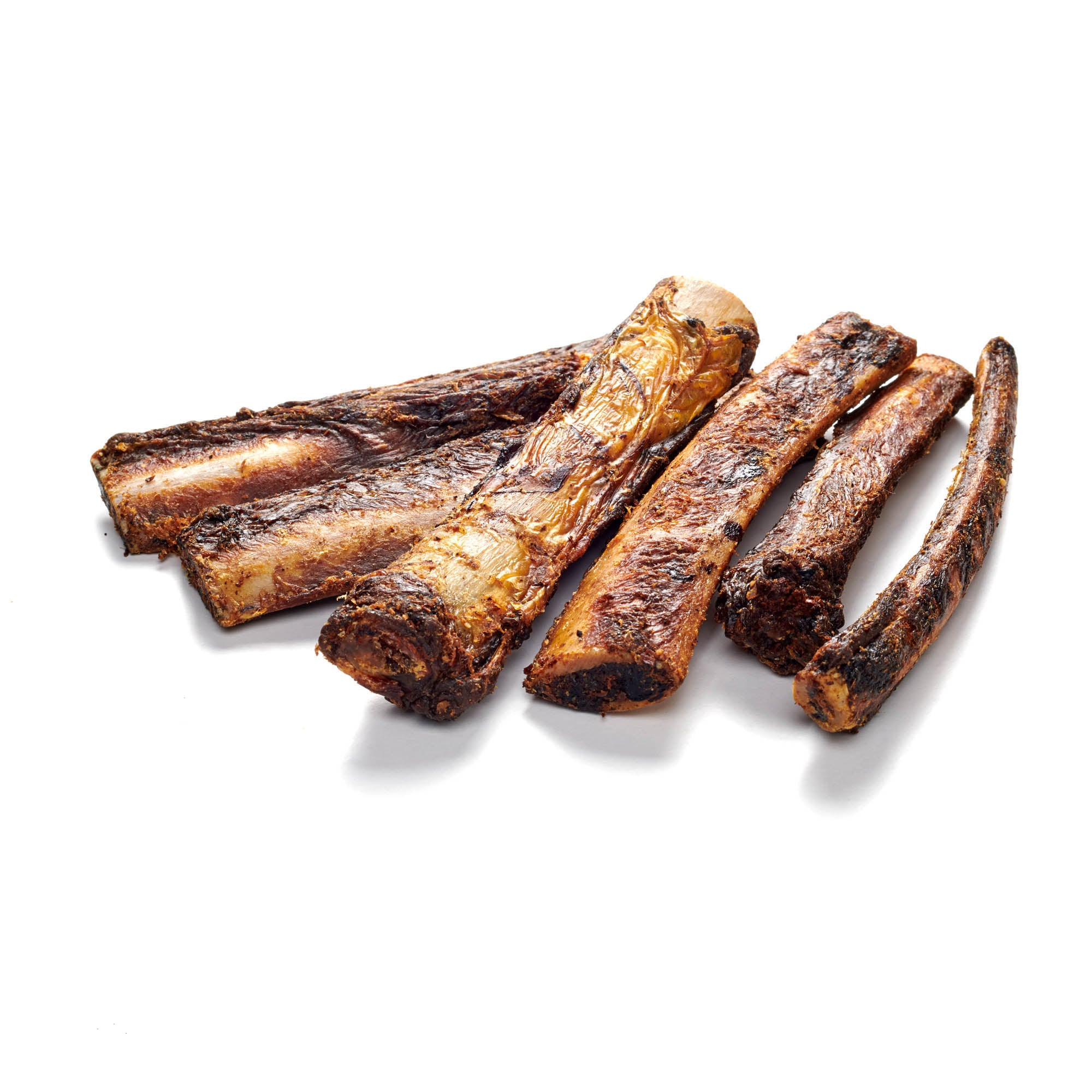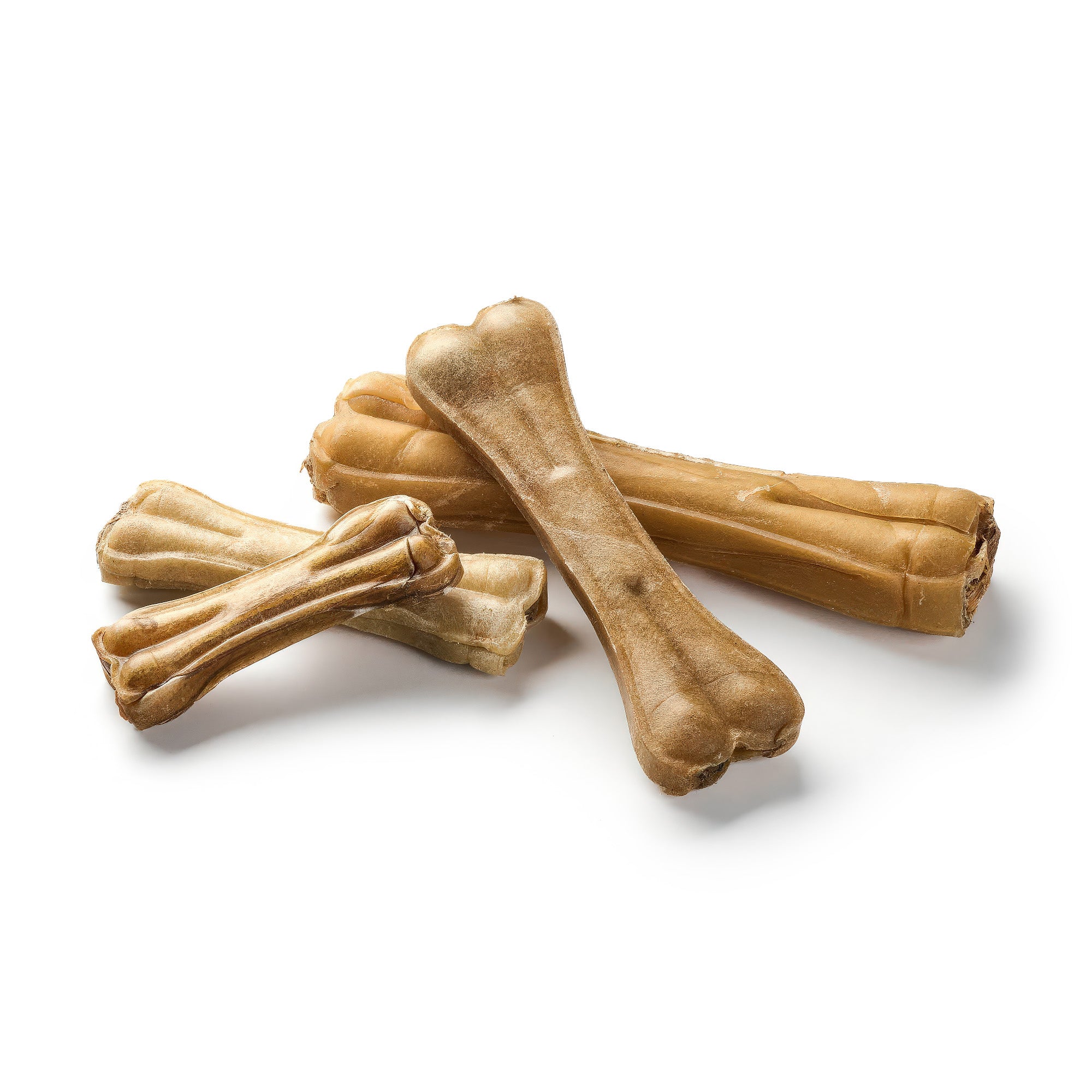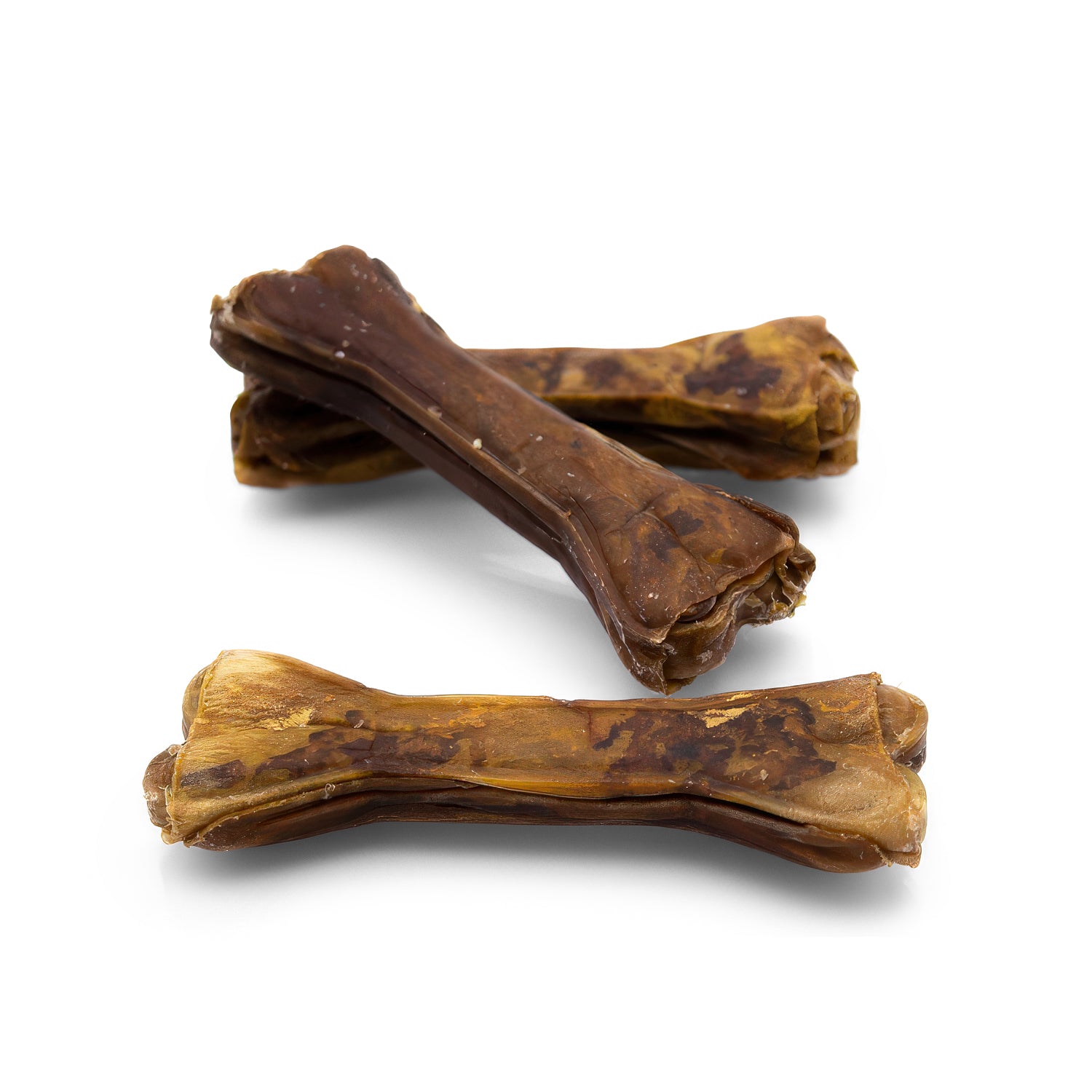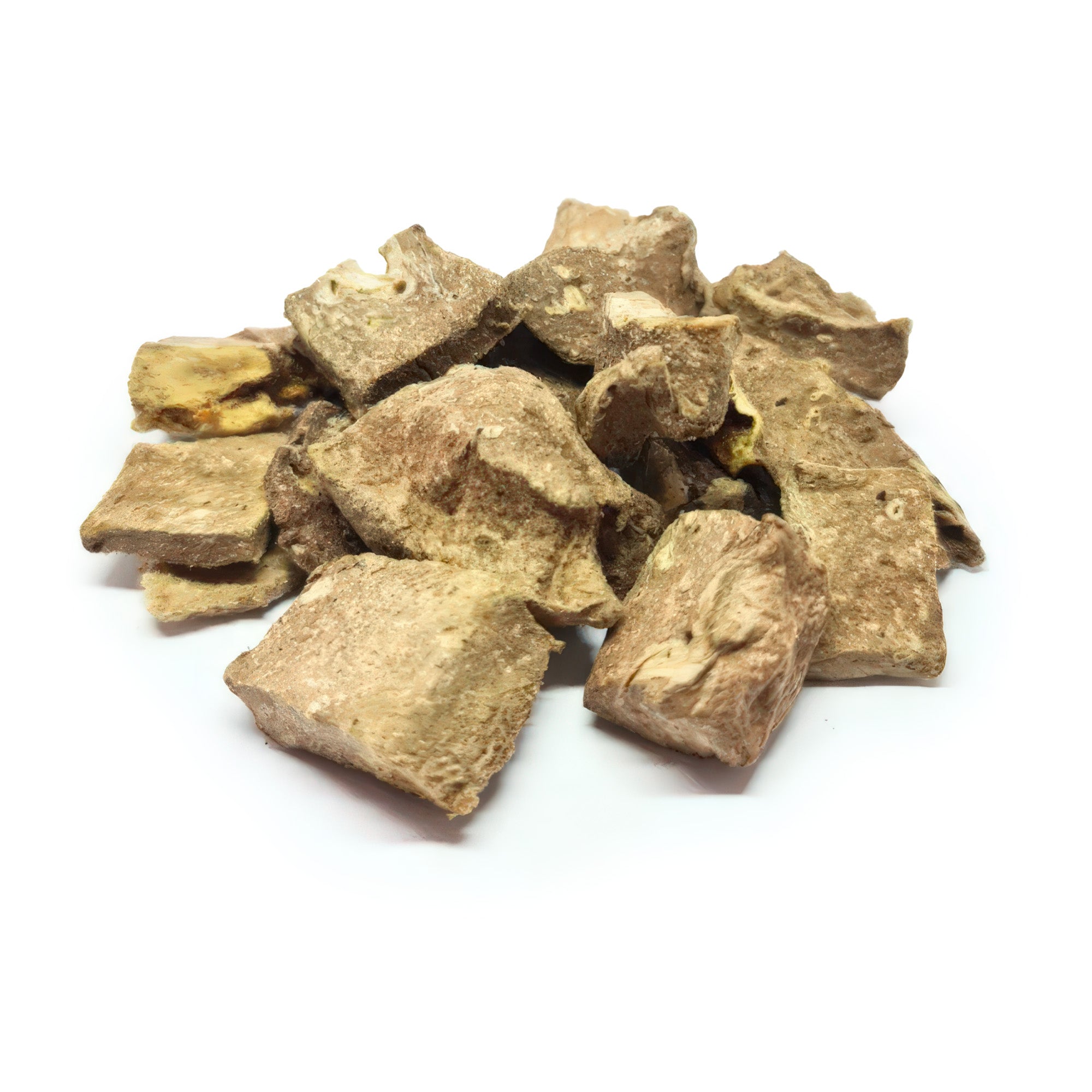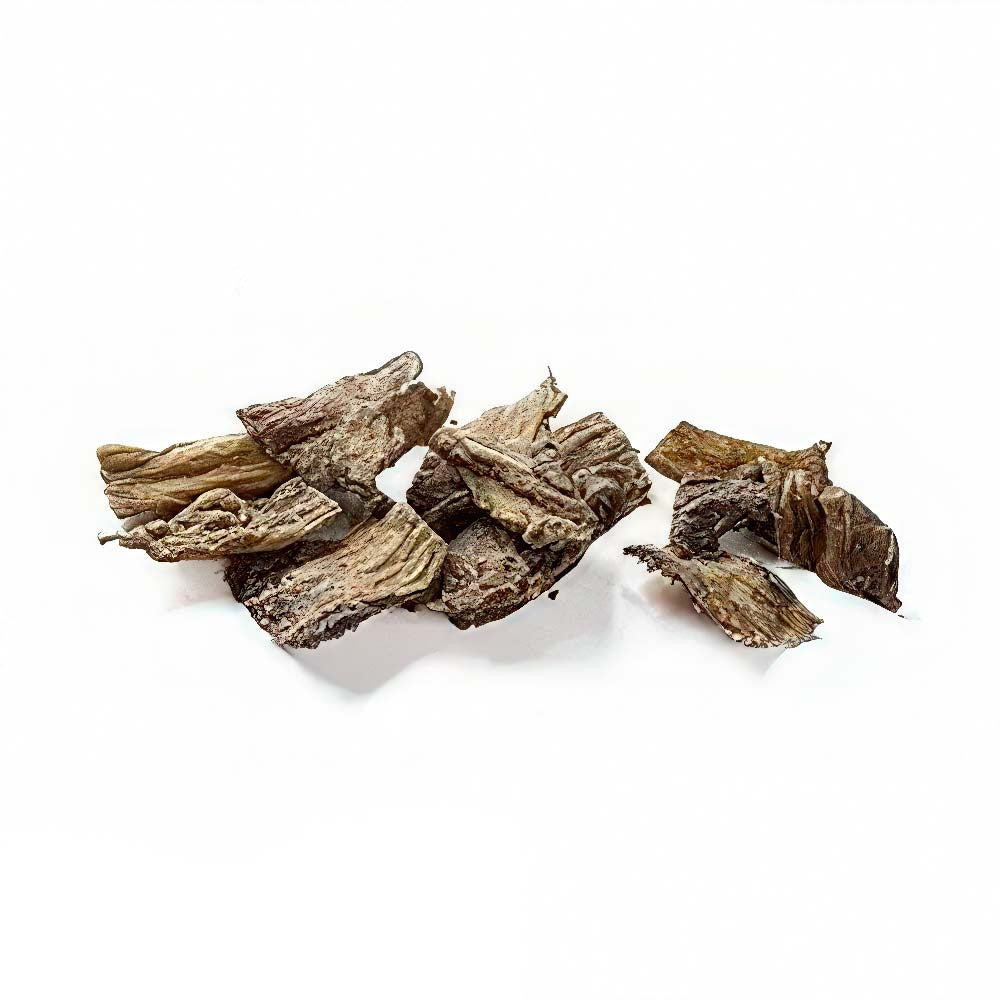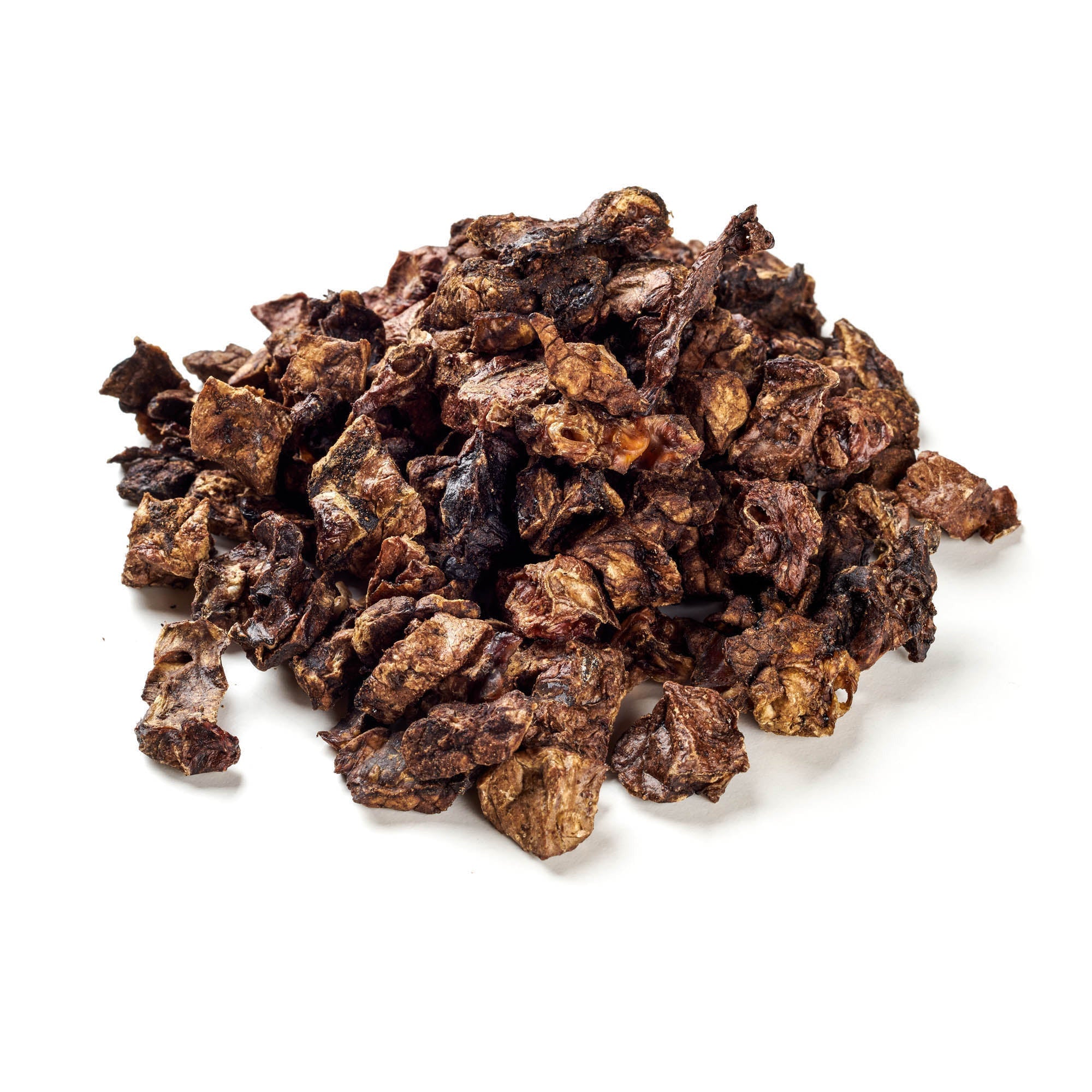
Basics of dog nutrition - Important nutrients for health
Share
Dogs are much more than just pets; they are loyal companions, happy playmates and often our best friends. Their joy of life and vitality are reflected in every tail movement and every happy bark. But what is actually behind the health and well-being of these wonderful animals? A key factor is the right diet.
Imagine being able to give your dog the best possible source of energy so that he can run around the park full of energy every day. From juicy pieces of meat to crisp vegetables - the world of dog nutrition is as diverse as it is fascinating. Choosing the right food for your beloved four-legged friend is not just a chore, but can be an exciting journey of discovery where you learn what makes your animal friend happy and healthy.
Contents: Basics of dog nutrition - Important nutrients for health
- The importance of a balanced diet
- Basic nutrients for dogs
- Vitamins and minerals: essential micronutrients
- Special dietary needs
- Practical tips on dog nutrition
- Conclusion
Dogs are not just robust animals that can survive on any food that is put in front of them. Their needs are varied and depend on numerous factors - be it age, breed, activity level or special health requirements.
These wonderful creatures deserve a carefully balanced diet that helps them thrive in all phases of life. Let's accompany our dogs on this journey and discover how we can promote not only their health but also their joy of life with the right diet.
Enjoy moments together with our delicious dog chews!
The importance of a balanced diet
A balanced diet is the key to a long and healthy dog life. It ensures that all necessary nutrients are supplied in the right amounts and proportions.
Why a balanced diet is important
A balanced diet ensures that dogs get all the important vitamins, minerals, proteins, fats and carbohydrates they need to stay healthy and active. It supports the immune system, promotes a healthy coat, supports muscles and strengthens bones. An unbalanced diet can lead to deficiencies, illness and a reduced quality of life.
Signs of an unbalanced diet
There are several signs that may indicate that a dog is not getting the right diet: dull coat, skin problems, lack of energy, digestive problems , and a weak immune system . If such signs are seen, the dog's diet should be reviewed and adjusted.
Basic nutrients for dogs
Dogs need a variety of nutrients to stay healthy. These nutrients fall into several main categories.
Proteins: The building blocks of life
Proteins are essential components of a dog's diet. They provide the amino acids necessary for building and repairing tissue. They support muscle development, immune function and many other physiological processes.
- Animal vs. plant proteins: Animal proteins, such as those found in meat, fish and eggs, are particularly valuable because they contain all the essential amino acids in the right proportions. Plant proteins, found in grains, legumes and certain vegetables, can also be useful, but should not be the only source of protein.
- Recommended protein sources: Good protein sources for dogs include lean meats such as chicken, turkey, lamb and fish. Eggs and certain dairy products can also provide valuable protein. When choosing protein sources, attention should be paid to quality and proper preparation to ensure they are easily digestible.
Fats: Essential energy sources
Fats are an important source of energy and provide more than twice as much energy as proteins and carbohydrates. They are necessary for the absorption of fat-soluble vitamins and the support of cell functions.
- Saturated vs. unsaturated fats: Saturated fats, which are mainly found in animal products, should be fed in moderation as excess can lead to health problems. Unsaturated fats, which are found in vegetable oils and fish, are healthy and should make up a larger proportion of the fat intake.
- Omega-3 and Omega-6 fatty acids: These special fatty acids are particularly important for the health of dogs. Omega-3 fatty acids, which are found in fish oil and flaxseed, have an anti-inflammatory effect and support brain function. Omega-6 fatty acids, which are found in vegetable oils, are important for skin and coat health.
Carbohydrates: energy and fiber
Carbohydrates are an important source of energy and provide fiber, which is necessary for healthy digestion. Although dogs do not need large amounts of carbohydrates, they can still benefit from a moderate amount.
- Simple vs. complex carbohydrates: Simple carbohydrates, like sugar, are quickly digested and provide immediate energy, but should be eaten in moderation. Complex carbohydrates, like those found in whole grains, vegetables, and legumes, provide long-lasting energy and are a better dietary choice.
- Good sources of carbohydrates: Good sources of complex carbohydrates are brown rice, oatmeal, sweet potatoes and various vegetables. These foods not only provide energy but also important vitamins, minerals and fiber.
Vitamins and minerals: essential micronutrients
Vitamins and minerals are needed in small amounts but play a major role in health.
Important vitamins for dogs
Vitamins are essential organic compounds that support various functions in the body.
- Vitamin A: Important for vision, the immune system and skin health. It is found in liver, fish oil and eggs.
- Vitamin D: Supports bone development and calcium absorption. It is synthesized by sunlight and is found in fish oil and egg yolk
- Vitamin E: A powerful antioxidant that supports cellular health. It is found in vegetable oils, nuts and green leafy vegetables
- B vitamins: Including B1, B2, B3, B5, B6, B7, B9 and B12, important for energy metabolism and neurological function. They are found in meat, whole grains and certain vegetables
Important minerals for dogs
Minerals are inorganic elements that are necessary for many physiological functions.
Calcium and phosphorus: Essential for bone and dental health. A balanced ratio of these minerals is important for skeletal growth and development.
- Magnesium: Important for muscle and nerve function. It is found in whole grain products, nuts and green leafy vegetables.
- Iron: Necessary for the formation of hemoglobin, which carries oxygen in the blood. Meat, especially red meat and organ meats, are good sources of iron.
- Zinc: Supports the immune system, skin health and wound healing. It is found in meat, eggs and dairy products.
Make your dog happy with our delicious snacks!
Special dietary needs
Dogs have different nutritional needs depending on their age, breed, size and health status.
Nutrition of puppies
Puppies require a specially formulated diet that is high in protein and calories to support their rapid growth.Puppy food also contains higher amounts of calcium and phosphorus to support bone development. Puppies should be fed more frequently than adult dogs because they have smaller stomachs and burn energy quickly. At a certain age, usually between 12 and 18 months, a gradual transition to an appropriate adult diet should be made.
Nutrition for older dogs
Older dogs have different nutritional needs than younger dogs. They require a diet that is easier to digest and lower in calories to avoid obesity. Supplements such as glucosamine and chondroitin can help support joint health. As dogs age, their metabolism slows and their energy needs decrease. Special supplements and diets can help promote joint health and maintain mobility.
Nutrition for overweight dogs
Overweight dogs require a reduced-calorie diet that is high in fiber to promote satiety. Regular exercise and controlled feeding are also important to reduce weight and improve health. The amount and type of food should be carefully monitored, and regular exercise helps control weight and promote overall health.
Nutrition for dogs with allergies or intolerances
Dogs with food allergies or intolerances require a special diet that is free of the allergens in question. Hypoallergenic foods or homemade diets can be a good solution. These foods are specially formulated to avoid common allergens. One method of identifying allergens is the elimination diet, which involves gradually removing and reintroducing certain foods from the diet.
Practical tips on dog nutrition
In addition to basic nutrients, there are other important aspects that should be considered when feeding dogs. Proper portion size and feeding frequency are crucial to avoid over- or under-feeding. The amount of food should be adjusted to the dog's age, weight, activity level and health status. Adult dogs should generally be fed twice a day to ensure stable blood sugar levels. The amount of food should be carefully measured and adjusted according to the veterinarian's recommendations.
Fresh and clean water should always be available. Water is essential for many body functions, including digestion, temperature regulation and nutrient distribution. The water should be changed regularly and the bowl cleaned to avoid contamination. The dog's water requirements should be monitored, especially on hot days and during periods of high activity.
There are certain foods that are toxic to dogs and should be avoided. These include chocolate, onions, garlic, grapes, raisins, alcohol, and certain artificial sweeteners such as xylitol. Make sure these foods are kept out of the dog's reach. In case of accidental ingestion of toxic foods, a veterinarian should be consulted immediately.
Switching from one brand or type of food to another should be done gradually to avoid digestive problems. Introducing new foods slowly allows the dog's digestive system to adjust. Gradually mix the new food with the old food over a period of about a week. Watch for signs of digestive problems or allergies during the switch.
Conclusion
The right diet is crucial for the health and well-being of your dog. A balanced diet that contains all the important nutrients in the right amounts and proportions supports the immune system, promotes a healthy coat, strengthens the muscles and ensures optimal digestion.
By considering your dog's specific nutritional needs and paying attention to high-quality food sources, you can ensure that your dog lives a long, healthy and happy life.
The attention and care you put into your dog's diet will be reflected in his health and happiness. By knowing the basic nutrients and adapting the diet to the dog's individual needs, many health problems can be avoided and general well-being can be promoted.
First-class dog chews for happy sniffing noses available here!



